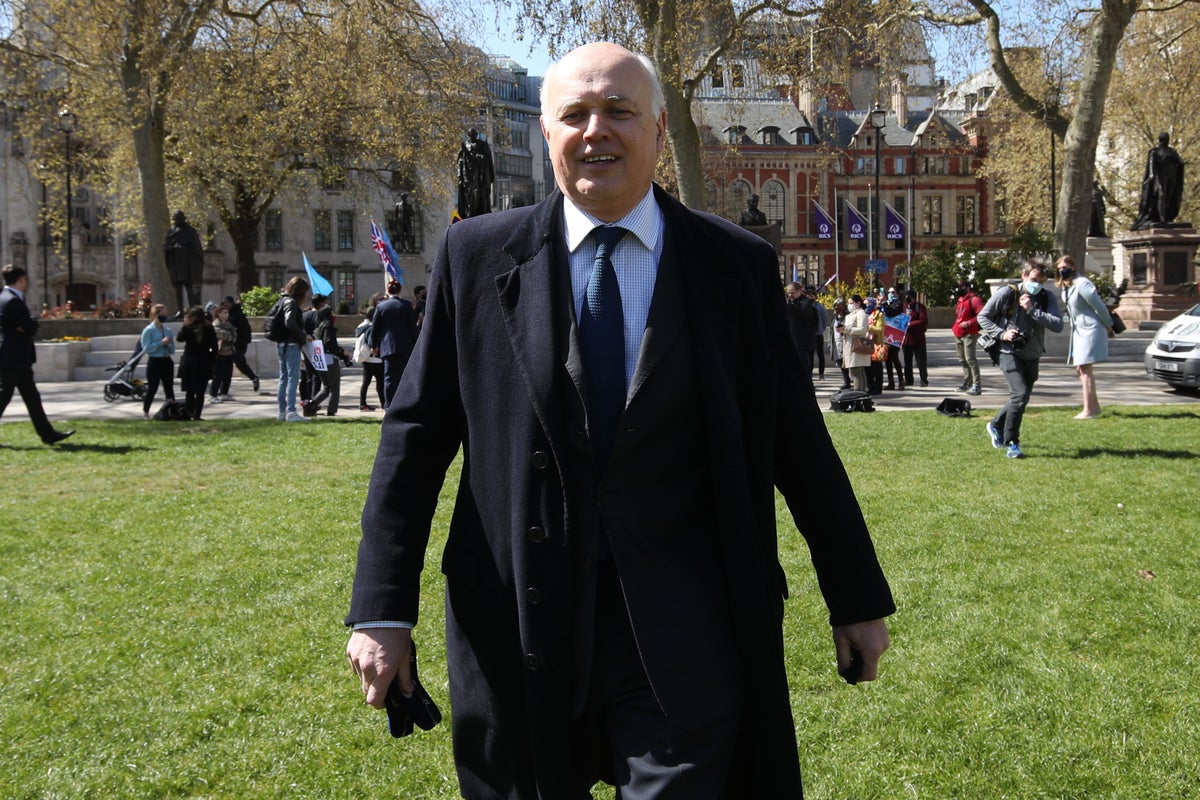
Nato allies could have “been more positive” about Ukraine’s future within the alliance, a Conservative former minister has said.
Tory former leader Sir Iain Duncan Smith told the Commons he was “slightly sorry” Nato was not able to send Ukraine “a stronger signal about its future with regards to Nato”.
Sir Iain was speaking as MPs debated the Government’s action on the war in Ukraine.
It came after world leaders, including the Prime Minister Rishi Sunak, attended a Nato summit in Lithuania this week.
The Tory former party leader added: “I think we could have been more positive… And America and Germany particularly stood in the way of the general mood of the Council to offer more to Ukraine.
“I know we couldn’t have probably brought them in immediately and everyone harped on about Article Five being the problem here because it committed people to go to war. It does no such thing by the way. It’s always worth reading these things before you ever pronounce on them.
“Article Five does not commit the nations in Nato to go directly to war, what it commits them to do is to agree together that they will take action as they deem necessary.”
During the Commons debate, MPs gave their support to a backbench motion which called on the Government to “continue and accelerate its support for the Ukrainian armed forces” and to note warnings from the Foreign Affairs Select Committee about the role of dirty money in the war.
The cross-party committee last year said the Government was not taking enough action on the flow of illicit cash through London, which could be used to fund Russia’s war effort in Ukraine.
Urging the Government to seize, not just freeze, Russian assets, Sir Iain said: “We may yet win the war, but that’s no good if what we leave behind is a shell of a country, incapable of operation, democracy, or even economic well-being. So, winning the peace is as vital and we need to be planning for that now.
“And they did that during the Second World War. It’s worth reminding ourselves that by the time the end of the war was there, they were very clear what they were going to do.
“Which brings me therefore to this point, whether it’s Nato, whether it’s an alliance of the G7 or whoever, it is important that we form a bloc in these matters and agree this.”
Shadow foreign office minister Catherine West said ministers needed to ensure their plans to tackle illicit finance were funded into the future, and called on them to “ensure that the plan has necessary funding to ensure that public investments matches the scale of the challenge that we face.”
Foreign Office minister Anne-Marie Trevelyan told the Commons: “Members rightly want to see continued sanctions while we are in this very difficult time, asset freezes and travel bans.
“But I was proud to bring in new legislation just last week which will now enable sanctions to be maintained until Moscow pays compensation for the reconstruction of Ukraine, and indeed a route developed for Ukrainian reconstruction.
“We will of course be also creating a route to allow individuals to voluntarily hand over those assets of theirs which are presently frozen into a fund to support reconstruction.
“That will be a one way ticket. If they feel like they have realised the error of their ways, this will be an opportunity for them to do so.”







